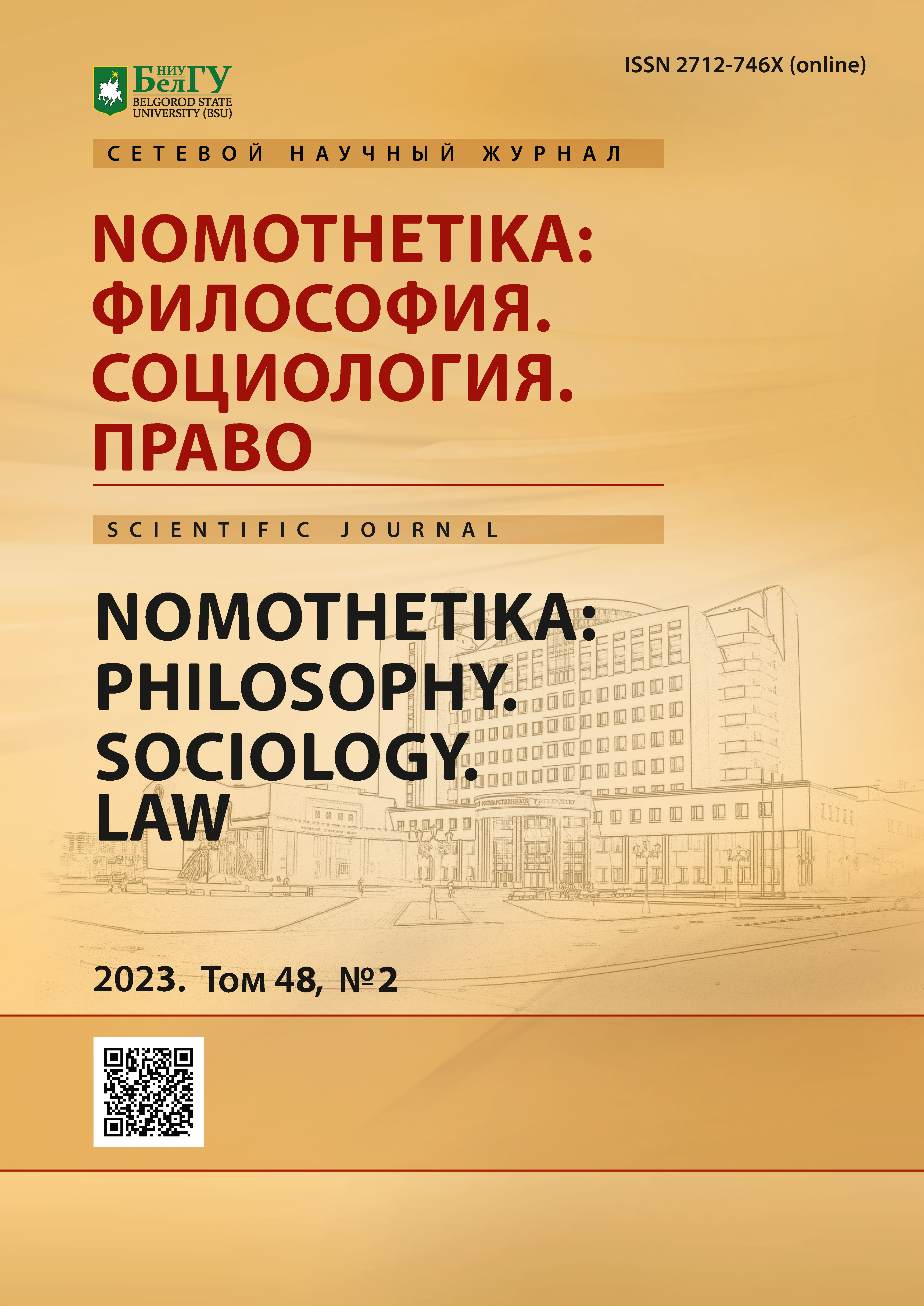The Meanings of the Concept of "Freedom" in Plato's Ideal State
DOI:
https://doi.org/10.52575/2712-746X-2023-48-2-352-358Keywords:
freedom, justice, restrictions, ideal state, laws, societyAbstract
The theme of human freedom has never lost its relevance. Philosophers of different eras have pondered and proposed designs for a society in which maximum conditions would be created for the comfortable life of the individual and the whole society. At the same time, society is such a complex structure that excessive freedoms in one area are a consequence of infringement or even destruction of freedoms in other areas. This is the difficulty of searching for a balance between freedom and its restriction in order to create the best option for society. Plato proposes his ideal state where, in his opinion, the best balance between restrictions and freedom is created. What restrictions in the social structure (ideal state) leave freedom? Can we even talk about freedom? – is not only a subject for research but also for discussion. The study concludes that, according to Plato, the non-freedom of some people is a guarantee of freedom of others, which, according to the ancient philosopher, is acceptable for the existence of an "ideal" state.
Downloads
References
Апресян Р.Г. 2001. Свобода. В кн.: Новая философская энциклопедия. Т. 3. М., Мысль, 501 с.
Асмус В.Ф. 2005. Античная философия. 3-е изд. М., Высш. Шк., 188 с.
Богомолов А.С. 1985. Античная философия. М., Изд-во Моск. Ун-та, 185 с.
Бородай Т.Ю. 2008. Государство. В кн.: Античная философия: Энциклопедический словарь. М., Прогресс – Традиция, 287 с.
Лосев А.Ф., Тахо-Годи А.А. 2014. Платон: Миф и реальность. М., «Молодая гвардия», 306 с.
Можейко М.А. 2002. Свобода. В кн.: Всемирная энциклопедия. Философия. XX век. М., АСТ, Харвест, Современный литератор, 976 с.
Нерсесянц В.С. 1979. Политические учения древней Греции. М., Наука, 148 с.
Новгородцев П.И. 2011. Политические идеалы Древнего и Нового мира. Изд. 2-е. М., КРАСАНДР, 185 с.
Остроумов М. 1880. Обзор философских учений. Для духовных семинарий. М., Типография Э. Лисснер и Ю. Роман, на Арбате, дом Каринской, 179 с.
Платон. 2016. Полное собрание сочинений в одном томе. М., «Издательство АЛЬФА-КНИГА», 1311 с.
Трубецкой Е.Н. 2011. Политические идеалы Платона и Аристотеля. – М., Книжный дом «ЛИБРОКОМ», 105 с.
Уайтхед А. 1990. Избранные работы по философии. Пер. с англ. М., Прогресс: 448 с.
Чанышев А.Н. 1981. Курс лекций по древней философии. М., Высш. Школа, 374 с.
Abstract views: 527
Share
Published
How to Cite
Issue
Section
Copyright (c) 2023 NOMOTHETIKA: Philosophy. Sociology. Law

This work is licensed under a Creative Commons Attribution 4.0 International License.


